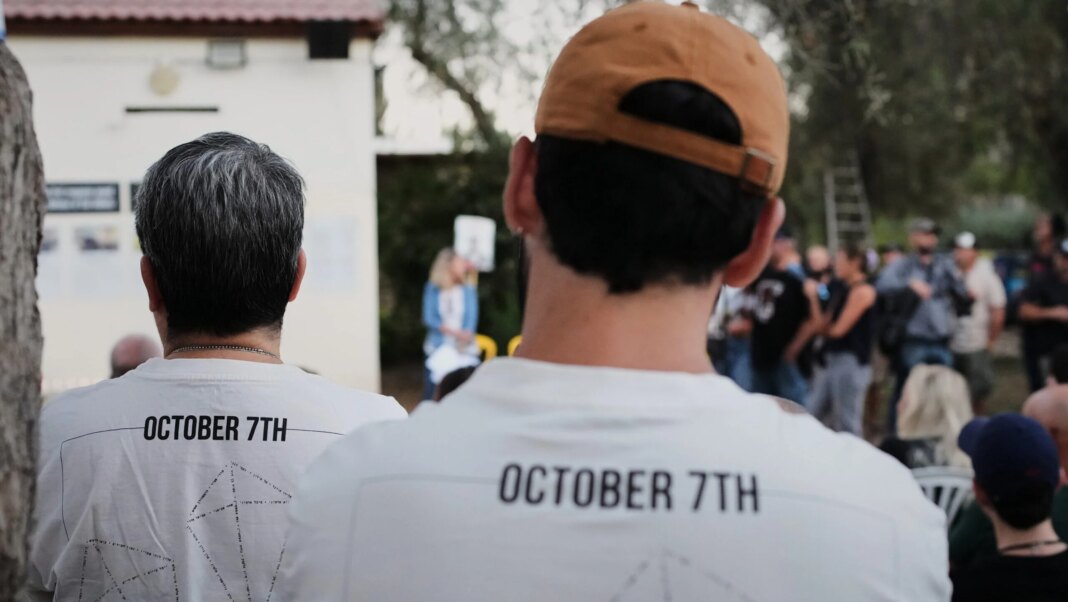On Tuesday, thousands gathered in southern Israel to commemorate the lives lost, marking the somber two-year anniversary of Hamas’ harrowing attack on October 7. This tragic day remains etched in the national consciousness, as it spiraled the region into a fierce and devastating conflict. Meanwhile, indirect peace negotiations between Israel and Hamas continue in Egypt, signaling the complexity of the ongoing situation.
The primary memorial service in Tel Aviv, organized by bereaved families, is set for the evening. It stands apart from an official ceremony the government plans for next week, according to the Hebrew calendar. This division underscores growing discontent towards Israeli Prime Minister Benjamin Netanyahu, whose leadership is often scrutinized for the failure to negotiate a ceasefire that might lead to the release of hostages still held by Hamas.
The Worst Attack in Israel’s History
The assault on October 7th remains the darkest chapter in Israel’s recent history. Hamas militants launched an unexpected barrage of rockets, infiltrating southern Israel and targeting army bases, farming communities, and even an outdoor music festival. The attack resulted in approximately 1,200 deaths, predominantly civilians, including women, children, and the elderly. Furthermore, 251 individuals were abducted, and despite some being released over time, around 48 hostages are still believed to be in Gaza, with hopes dwindling for their safe return.
Netanyahu has made it clear that the conflict will persist until all captives are free and Hamas is disarmed. The ramifications of this initial assault triggered a wider conflict involving Iran and its allies, including Hezbollah in Lebanon, leading to significant military engagement. The U.S. also participated by targeting Iranian military assets within a twelve-day war in June, demonstrating the global scale of the confrontation.
Despite the military operations that succeeded in weakening enemy forces, the ongoing hostage situation continues to divide public opinion in Israel. Massive protests have erupted against Netanyahu’s policies, showcasing a populace growing increasingly frustrated with the government’s handling of security and peace negotiations.
A Memorial at the Scene of a Massacre
The Nova music festival site in Reim, where nearly 400 Israelis lost their lives, has transformed into a poignant memorial. Photographs of the victims now line the area, serving as a stark reminder of that tragic day. Though an official ceremony was absent due to the Jewish holiday of Sukkot, many chose to congregate, sharing memories and connecting over their collective grief.
At 6:29 AM—exactly when the attack began—music paused for a moment of silence. Survivors and families embraced openly, recounting their losses. Alon Muskinov, who lost three friends during the festival, articulated the relentless nature of their pain: “We are reliving this every day anew, every day we remember them.” Yehuda Rahmani, who lost his daughter, visits the site daily, holding out hope to learn more about her final moments.
As they mourn, tensions remain palpable. The sounds of conflict can be heard echoing from Gaza, a stark reminder of the ongoing violence. Reports indicate that Israeli forces have undertaken numerous arrests across various regions, part of a broader counter-terrorism operation.
The upcoming Tel Aviv ceremony, coordinated by Yonatan Shamriz—who lost his brother during the initial chaos—signals both remembrance and the longing for resolution. Others like Shay Dickmann, whose family endured unimaginable loss, articulated a common yearning: “We all deserve it, we deserve it, our neighbors deserve it, we want this war to end.”
Israel and Hamas Discuss Indirect Peace Talks
Across the border in Egypt, talks involving Israeli and Hamas officials are ongoing, focusing on U.S. President Donald Trump’s peace plan. However, the situation on the ground in Gaza presents a complicated backdrop. Reports indicate over 67,000 Palestinians have perished due to Israel’s military operations, with claims of significant civilian casualties raising eyebrows internationally.
The impact of these hostilities has led to mass displacements, with around 90% of Gaza’s population, approximately two million individuals, forced from their homes multiple times. Many activists and organizations have raised alarms regarding humanitarian conditions, asserting that Gaza is nearing famine levels.
The international narrative surrounding the conflict is fraught with accusations from various quarters, including claims of genocide directed towards Israel. Nonetheless, Israeli officials maintain their stance of acting in self-defense, placing the onus on Hamas for the ongoing crisis. The militants argue that their initial attack was a response to longstanding grievances regarding Israeli actions in Palestinian territories.
As discussions envelop both mourning and hope for the future, the realities on the ground continue to evolve, leaving many uncertain about what lies ahead for both Israelis and Palestinians.



